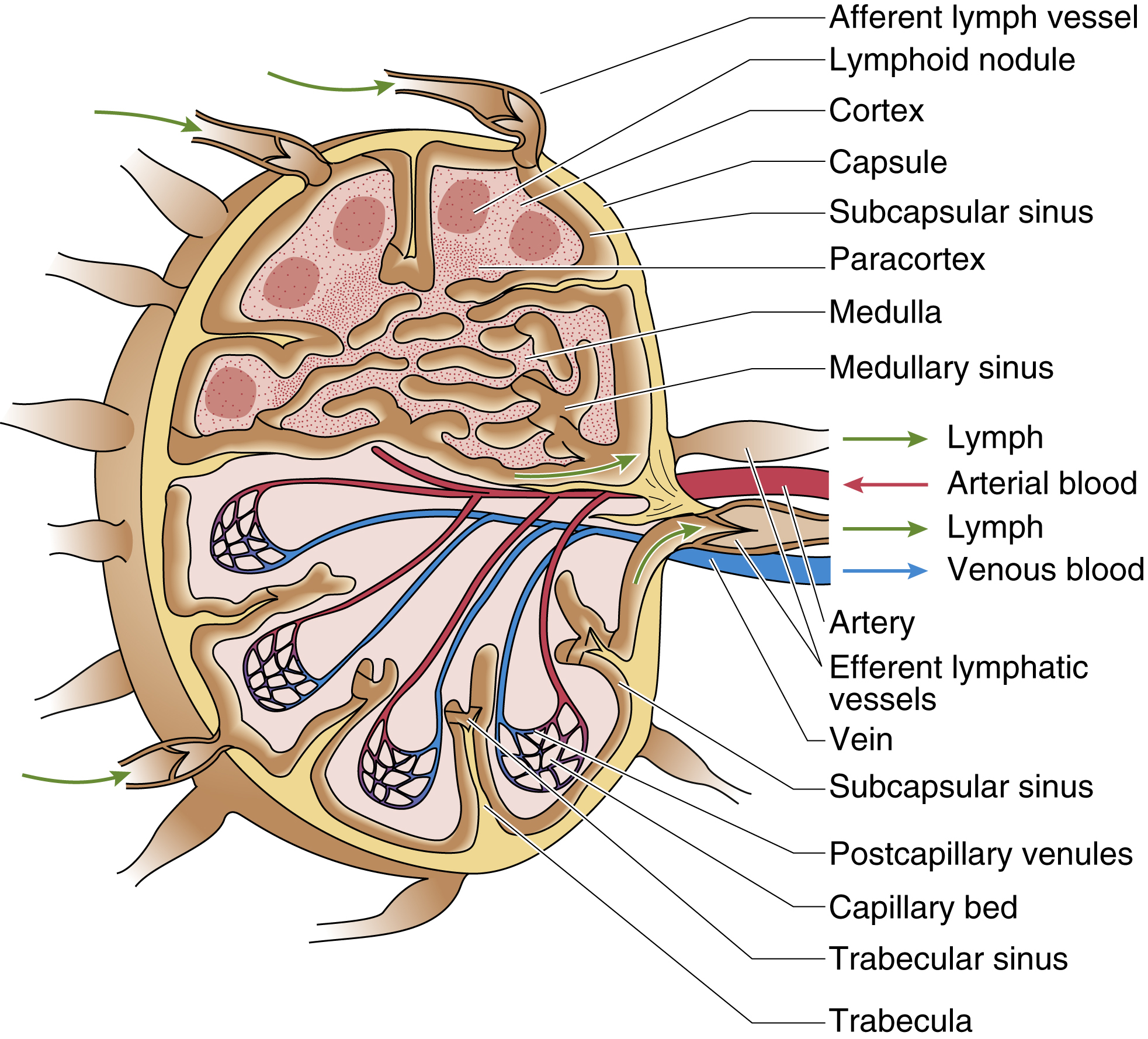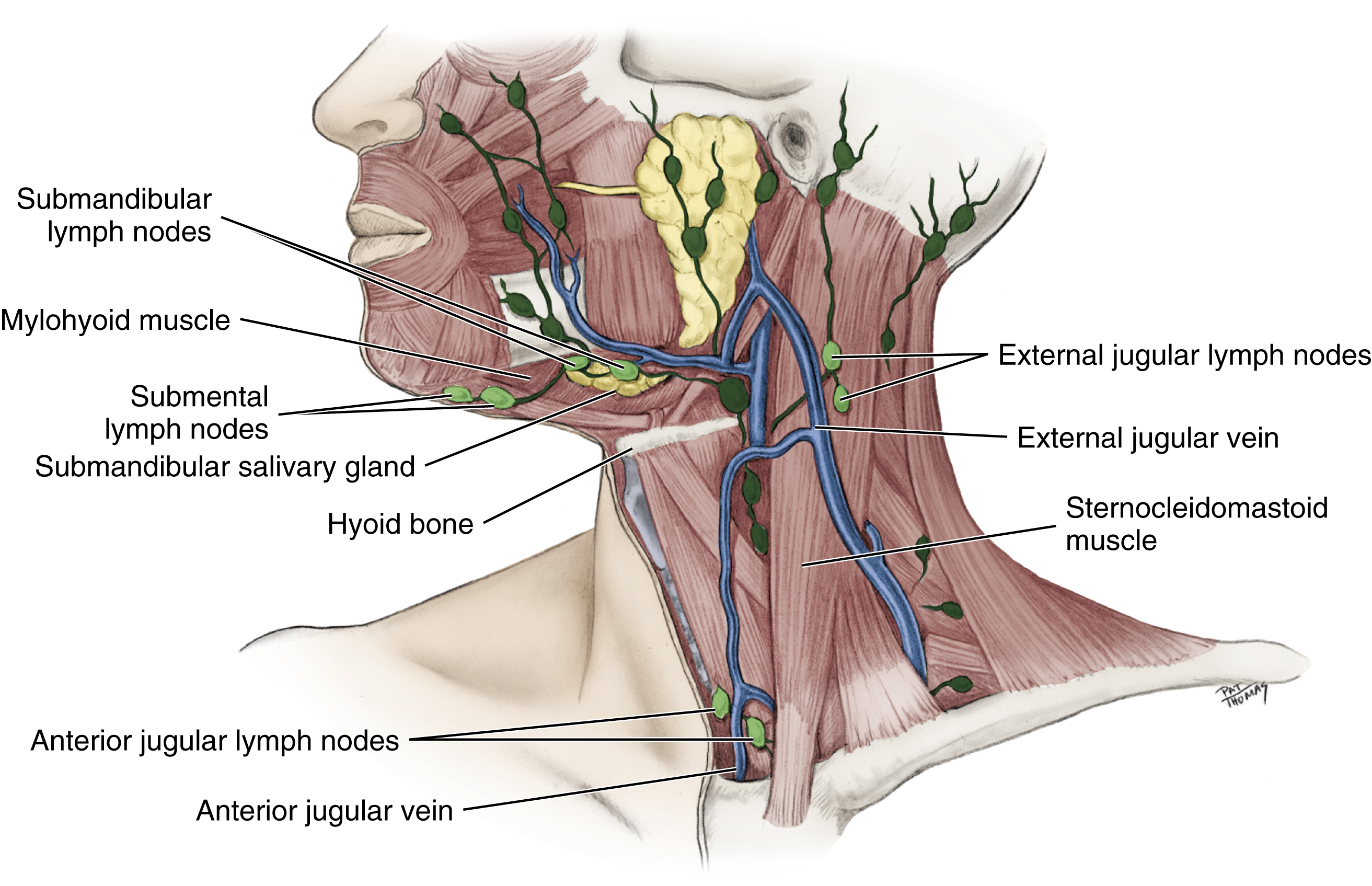lymph node [L, lympha + nodus, knot] , one of the many small oval structures that filter the lymph and fight infection and in which lymphocytes, monocytes, and plasma cells are formed. The lymph nodes are of different sizes, some as small as pinheads, others as large as lima beans. Each node is enclosed in a capsule, is composed of a lighter-colored cortical part and a darker medullary part, and consists of closely packed lymphocytes, reticular connective tissue laced by trabeculae, and three kinds of sinuses: subcapsular, cortical, and medullary. Lymph flows into the node through afferent lymphatic vessels that open into the subcapsular sinuses. Most lymph nodes are clustered in areas such as the mouth, the neck, the lower arm, the axilla, and the groin. The lymphatic network and nodes of the breast are especially crucial in the diagnosis and treatment of breast cancer. Also called lymph gland.


